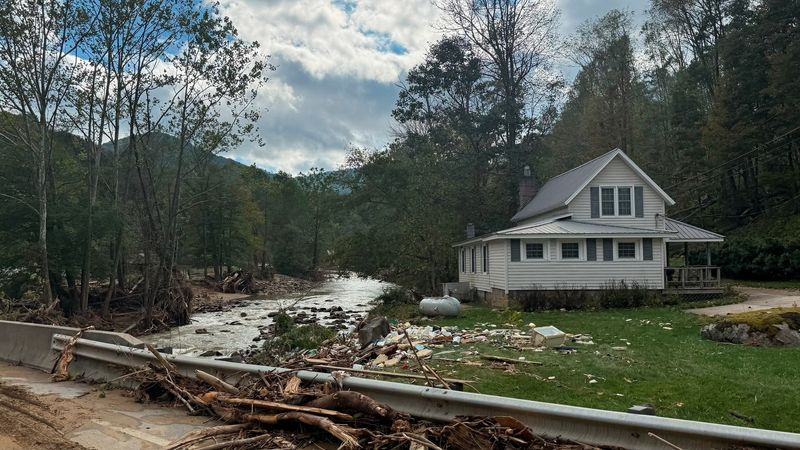North Carolina faces ‘daunting’ election after Hurricane Helene, officials say

By Stephanie Kelly
WASHINGTON (Reuters) – North Carolina election officials are scrambling to make sure the state’s over 7 million registered voters can cast a ballot in the upcoming presidential election, after flooding from Hurricane Helene caused extensive damage in the western part of the state.
North Carolina is one of seven “battleground” states that are expected to determine whether Republican Donald Trump or Democrat Vice President Kamala Harris is the next president of the United States.
“The destruction is unprecedented, and this level of uncertainty, this close to Election Day is daunting,” Karen Brinson-Bell, executive director of the state’s board of elections, said on Tuesday.
Twelve county election offices are closed in western North Carolina due to the storm, with the Oct. 11 voter registration deadline fast approaching, she said. But no voting equipment or ballots were damaged in the storm, she said.
The state expects to have a full assessment of the impacts of the storm on election facilities and other issues by mid to late week, she said.
The board has set up a website with Helene-related voting information, is working with the U.S. Postal Service to ensure receipt of absentee ballot and will continue to allow voters to register on-site with proof of address, she said.
Hundreds of homes have been destroyed in western North Carolina and residents displaced; some town and village centers were wiped out by unexpected flooding after the storm.
North Carolina is one of several states targeted by Republicans with new restrictive voting laws. Democrats hope to flip the state to back Harris in November, which would be the first time since 2008 North Carolina voters backed a Democrat.
Asked whether the changes, upheaval and uncertainty would impact people’s faith in the election results, Brinson-Bell said the state would still rely on precinct poll books and post-election verification checks, even if voters have to vote in a different way than normal.
“It’s not going to stop how we do elections. Just because there’s been a hurricane, we might have to do it a little differently.”
(Reporting by Stephanie Kelly; editing by Heather Timmons and Aurora Ellis)